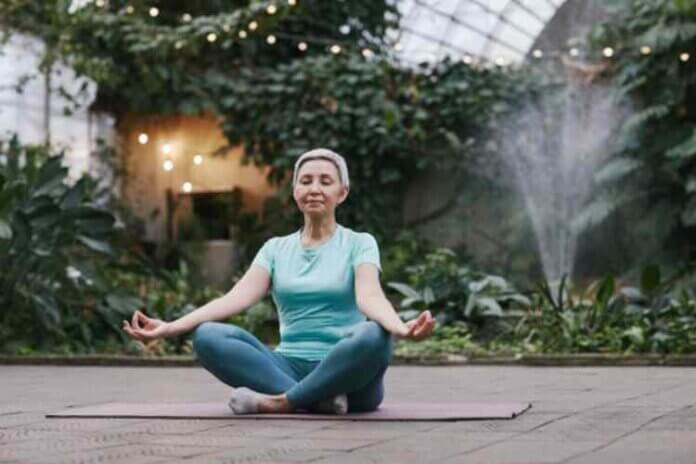
Are you feeling stressed out and anxious? Are your thoughts running wild like a pack of caffeinated chihuahuas? Well, fear not, my dear friend, because you’ve come to the right place. In a world that moves at breakneck speed, it’s easy to feel like we’re drowning in a sea of responsibilities and worries. But don’t worry; we’re here to throw you a lifeline and help you find your way back to the calm waters of serenity. So, let’s explore some techniques to calm the mind and body without having to resort to drinking a whole bottle of wine or going on a solo backpacking trip to the Himalayas.
1.Exercise regularly
There are several benefits of exercise for both physical and mental health. Regular exercise can reduce stress and anxiety levels, improve sleep quality, and boost overall mood. Even small amounts of exercise can make a difference, so try incorporating physical activity into your daily routine. Walking, jogging, cycling, and yoga are all great options.
2.Stick to a sleep schedule
Sleep is necessary for maintaining mental wellness. While getting enough sleep can assist lower stress and encourage relaxation, receiving little sleep might raise anxiety levels. Stick to a regular sleep pattern and attempt to get between seven and nine hours of sleep each night.
3.Try mindfulness and relaxation techniques
Mindfulness and relaxation techniques can help reduce anxiety by promoting relaxation and reducing stress levels. Techniques like deep breathing, meditation, and progressive muscle relaxation can all be effective. Apps like Calm and Headspace offer guided meditations and other relaxation exercises that can be done from the comfort of your own home.
4.Eat healthy and avoid substances
Our mental health can be significantly impacted by what we consume. Eating a healthy, balanced diet can help reduce anxiety levels, while consuming too much caffeine, sugar, or alcohol can exacerbate anxiety symptoms. Try to eat a diet rich in whole foods like fruits, vegetables, whole grains, and lean protein.
5.Try supplements like magnesium
Supplements like magnesium have been shown to have a calming effect on the mind and body. Magnesium is involved in over 300 biochemical reactions in the body, including those related to stress and anxiety.
6.Reduce caffeine
While caffeine can provide a temporary energy boost, it can also increase anxiety levels. Try reducing your caffeine intake and see if you notice a difference in your anxiety levels.
Other tips for calming the mind and body include:
- Breathe slowly and deeply – Deep breathing can help reduce anxiety by promoting relaxation and reducing stress levels. Try taking a few slow, deep breaths when you start to feel anxious.
- Try yoga – Yoga combines physical movement with mindfulness and relaxation techniques, making it a great option for reducing anxiety.
- Get outside – Spending time in nature can help reduce anxiety levels and promote relaxation.
- Pamper yourself – Treat yourself with things you like. Take a vacation, watch a movie, go to an Oakville Nail Boutique, or do anything that keeps your mind off of things.
- Laugh – Laughter has been shown to have a positive impact on mental health, reducing stress and anxiety levels.
- Try aromatherapy – Essential oils like lavender and chamomile have a calming effect and can be used to promote relaxation.
- Massage therapy – Getting your sores out of your body with massage therapy in Waterloo is a good way to relieve stress and lower anxiety levels.
- Take a social media break – Social media can be a significant source of stress and anxiety for many people. Consider taking a break from social media to reduce anxiety levels.
- Spend time with loved ones – Spending time with friends and family can help reduce stress and anxiety levels, providing a sense of social support and connection.
Incorporating regular exercise, mindfulness and relaxation techniques, a healthy diet, and positive lifestyle habits can all make a difference. Talk to your doctor or a specialist like Shlomo Radcliffe & Associates if you’re struggling with anxiety.











